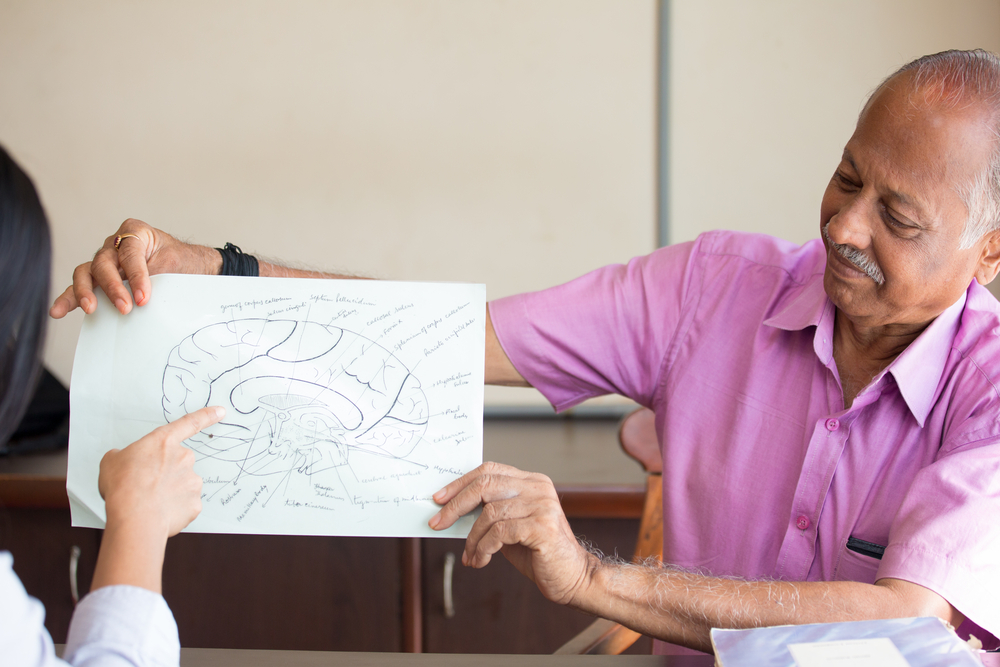Rush University Medical Center to Study Alzheimer’s Risk Factors in Latinos
Written by |

Rush University Medical Center in Chicago will investigate risk factors for Alzheimer’s disease among Latinos, a study it hopes will shed light on how Hispanics age.
The decision to do the research comes at time when scientists are predicting a nine-fold increase in Alzheimer’s cases among those of Latin American descent by 2060.
To try to get a handle on the risk of Latinos developing Alzheimer’s and dementia, researchers at the Rush Alzheimer’s Disease Core Center will measure cognition and movement in Hispanics.
“Past studies suggest that Latinos may have a higher risk of developing dementia compared to other groups, and a significant number appears to be getting Alzheimer’s disease at a younger age,” Dr. David X. Marquez, the Alzheimer’s center’s lead investigator of the study, said in a press release.
“Also, past surveys indicate that Latinos are less likely to see doctors because of financial and language barriers, often mistaking dementia symptoms for normal aging, thus delaying diagnosis,” he said.
A report from UsAgainstAlzheimer’s predicts that the proportion of Latinos 65 and older will increase by 224 percent between 2008 and 2030. That compares with a 65 percent increase among non-Latino whites.
Another projection is that the number of Latinos with Alzheimer’s disease will increase by 832 percent in the next five decades — from 379,000 in 2012 to 3.5 million in 2060. The cost to the U.S. economy through 2060 will be $2.35 trillion in 2012 dollars, according to UsAgainstAlzheimer’s.
Studies have suggested that Latinos are at higher risk of developing Alzheimer’s. But because most studies have focused on Caucasians, little concrete information has surfaced about the risk in the Latino population.
“Research has shown that Latinos are at greater risk of developing Alzheimer’s than any other racial group. This debilitating disease is further exacerbated in our community, where certain cultural stigmas erect barriers to care and health literacy,” Congresswoman Linda T. Sánchez said in the report.
“There has not been much research to understand why it is that Latinos are developing these conditions much earlier,” said Marquez, who said studies of Latino populations should take into account Hispanics’ origins. “Many prior studies are Latinos from the Caribbean islands. The Chicago area is comprised primarily of Latinos of Mexican heritage,” he said.
Researchers will recruit 300 elderly cognitively healthy individuals for their study. The participants will be visited once a year in their homes.
The participants will be examined in Spanish and English. The evaluations will include memory tests, blood sampling, and health and lifestyle questionnaires.
The research team will also ask participants to consider donating their brains to the study when they die. Post-mortem brain tissue is scarce, but is a key part of Alzheimer’s research. Brain tissue would allow researchers to correlate observations about the participants that were collected through the years with abnormalities seen in the participants’ brain.
The Rush Alzheimer’s Disease Core Center is unique in conducting research on dementia risk in specific populations. In July the center received $14.3 million from the National Institute on Aging for several projects covering 30 years.
The center’s other projects include studying Alzheimer’s risk among African-Americans and religious orders. It also runs the Rush Memory and Aging Project and the Minority Aging Research Study, which includes Latinos.
“Alzheimer’s disease is a major cause of death, it’s a major cause of disability, it’s a major cause of economic hardship, family hardship,” Dr. David Bennett, director of the Rush Alzheimer’s Disease Center, said. “For most people, their thinking and their memories are among the most precious things they have.”
“Individuals who join the Latino Core study will be making an important contribution to our knowledge about Alzheimer’s disease and the aging process of older Latino adults,” Marquez said.
“Brain donation is a gift for our children and grandchildren who we hope will live full and long lives without Alzheimer’s disease,” he added.
Those interested in learning more about the study may contact research coordinator Esmeralda Morales at 312-942-2260.





